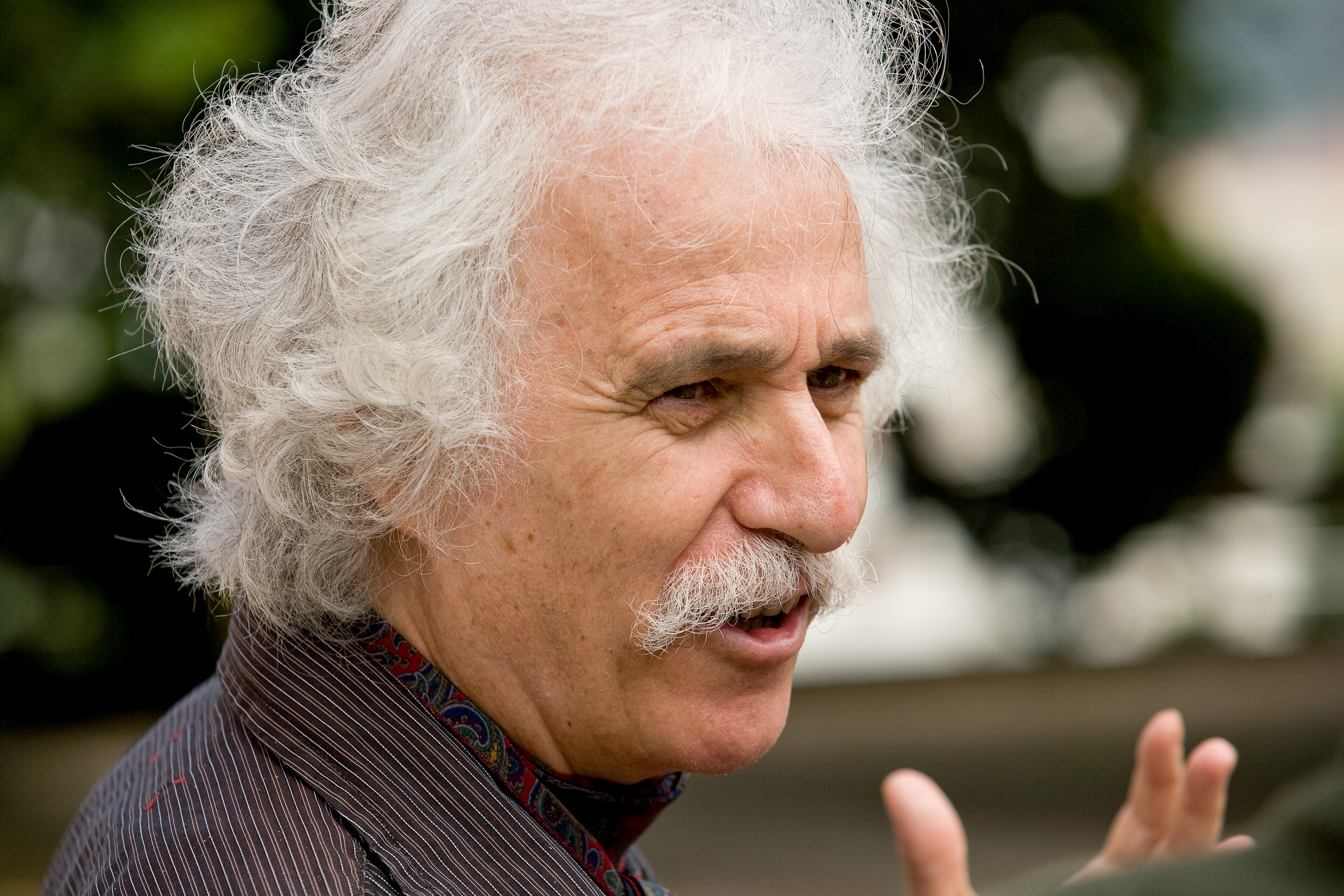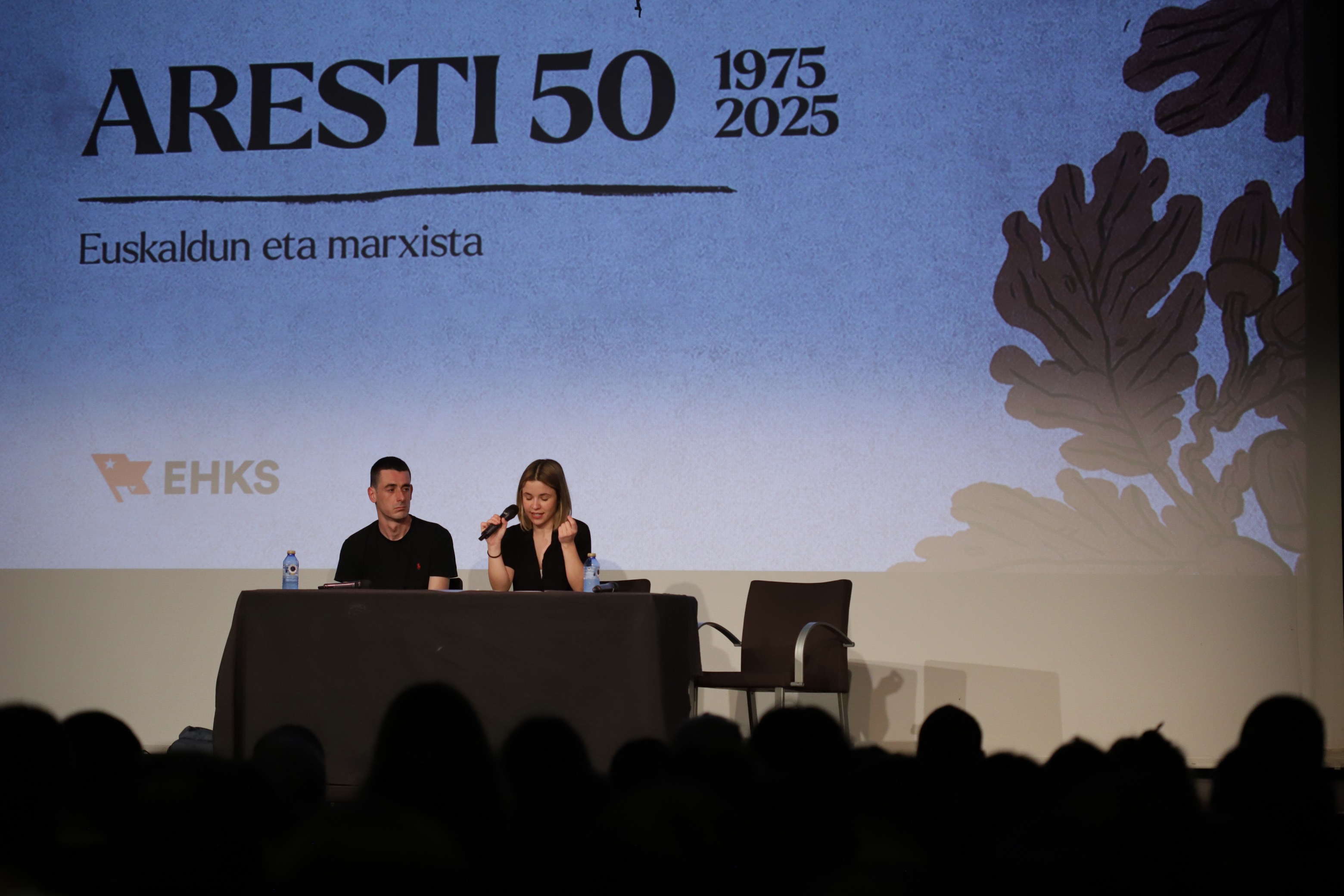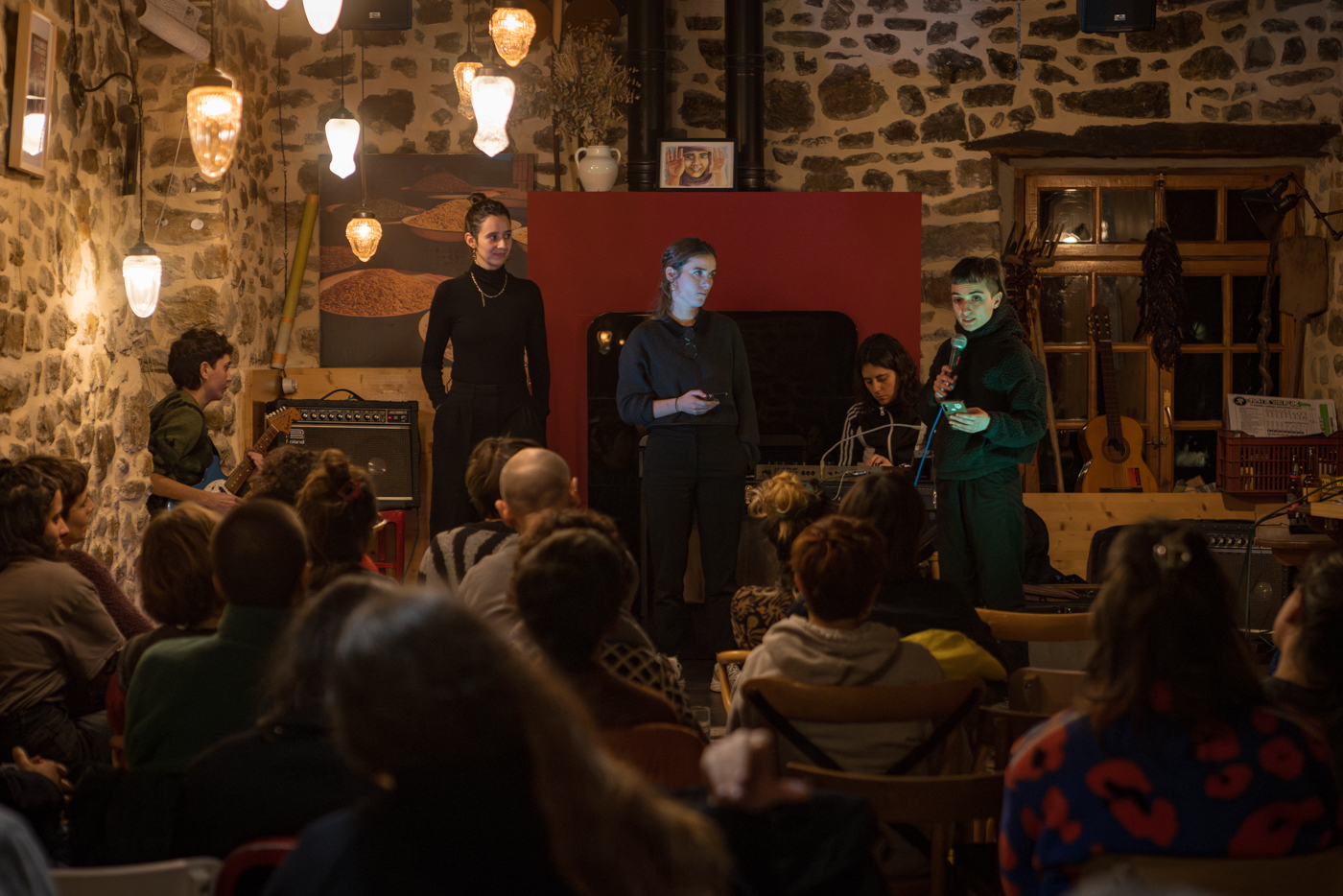John Mari Irigoien: Scarf to the neck and walk around the world
- On Tuesday the writer Joan Mari Irigoien died (Altza, 1948), who has left a mark in Basque literature. In addition to the novel, he has worked in poetry and fed and enriched the children's and youth literature. He worked for many years in Elkar publishing house. In total he has published almost 30 books. In the last eleven years he has fought against lateral sclerosis and, although at a more paused pace, he has drenched ideas.

The disease of sclerosis opened the wound and for 24 years he later wrote from the blackest of holes never explored as a professional writer. From the hole in his house, besides writing it, for a decade he fought sclerosis. And the illness, in addition to physics, caused serious mental damage. He immersed himself in depression and completed with lines that saw lights and shadows the book Two years of optional chronicle. A couple of years after diagnosing sclerosis, I had the new work in my hands.
At the gates of the summer of 2015, under the excuse of the book, he held a good colloquium with Mikel Asurmendi, and then brought him to the ARGIA pages. Speaking of depression, the journalist told him “you’ve known the hard port.” Irigoien, in his crude attitude and conception, naturally described his experiences as:
-Depression decreases disfigured, especially psychically. I had heard of the disease and that at some point you have to submit. A round truth. Before you shake the diseases, because you feel good, normal. But what is that normality? For me, in essence, it is a stable ground on which, without problems or headaches, you can build the house of your personality. But one day you feel weak, weak and strange, or strange to yourself. The stable earth you had underneath also starts to shake the house of your personality and who you were able to get rid of because of the lack of the leak of some brain neurotransmitters, the most important one called serotonin. And suddenly you feel on the threshold of horror, because it's not easy to move forward in life while you're on an existential earthquake that is dominating you. And when I was weak and sick, the worst questions, the worst ones, came to my head, called me for destruction -- and that was like having a fly in my eye: there the fly always around my eye, which periodically became a wasp, the cruel Asian wasp! So it was a useless toy of a disease: without being able to feel the heart, without the head being unclear.
Coming out of this psychological sinking, Irigoien published two poems in the language of that pain. Perhaps the most powerful, the already mentioned optional chronicle of the Two Years, in which there was a strong cry for euthanasia, which has remained in the memory of many. Respect for and the right to die with dignity was clearly stated.
Irigoien has been one of the most representative Basque writers of the twentieth century. He markedly marked his journey of youth to South America and, besides knowing the works of the great writers, the journey itself helped him, among other things, to further disturb his beliefs with the church. But he did not “put God or Everything in Mind,” as ARGIA says. “I liked it” “to make my hair”, always “with a great deal”. And although it was not so close to Catholicism, he also talked about the competition between good and evil, for example in his book Consummatum est (Elkar, 1993), on two levels: the delicate and prepared life of a mystical nun and the adventures of a fascist who struggles to avenge the pain experienced in his childhood.
Irigoien has been a very skilled writer, as his relatives have ratified on many occasions, because he was often able, for example, to write about the Basque Country in an almost mythological way, of a “possible” Basque Country, “we are very territorialist, not only in the physical, but also in the psychological”, and sometimes, in addition to humor. Her greatest work, better known and awarded, is Babylon (Elkar, 1989).
The last interview given to ARGIA was held in January 2020, on the occasion of the book Derbia (Elkar, 2019). He focused his work on football and soccer. Interview by Jon Torner: "The topics have their influence on the collective unconscious of each group."
Maybe the first interview
You can find an interview prior to the publication by Irigoien, tracking the ARGIA funds. With the excuse of having won a Irun poetry prize. Since 17 November 1974, almost 50 years have passed since. No photos on the net.
The journalist says in the introduction in order to frame the interview: “If anyone wants to know, Juan Mari Irigoien is born in Altza (Donostia) and residing in Oiartzun. He is not the only engineer who competes in the Basque letters, although he is almost the only one. Perhaps one of the few engineers working at ikastola in May. He's not a guy who was a Sanse footballer. He called "From Emptiness to Hope," he polled the first goal in the poetry awards. He has won the "City of Irun Prize," a prize of 75,000 pesetas.
During the interview Irigoien mentions that he has a written book, that he has just given it in an editorial and that he will have to see if it is published.
The journalist asks at some point whether his poems are “popular” and tells him back in a rather critical tone: “Today we speak a lot on behalf of the people. The mute people. I cannot speak on behalf of the people. I am a citizen, but I am not a people. We have divided the people on a theoretical level, but it doesn’t really matter so much when Herria doesn’t agree with us.”
The journalist, in a final text such as the initial one, addressed the following words to the readers of Zeruko Argia, I say, that Irigoien had not published anything yet: “Let this new poet from Altza give Euskal Herria a great job.” Errialde signed the interview almost 50 years ago.
Here are some photos recovered from the ARGIA file, from the free license photo library:
.jpg)
.jpg)
.jpg)
.jpg)

Astelehen honetan hasita, astebetez, Jon Miranderen obra izango dute aztergai: besteren artean, Mirande nor zen argitzeaz eta errepasatzeaz gain, bere figurarekin zer egin hausnartuko dute, polemikoak baitira bere hainbat adierazpen eta testu.
Martxoaren 17an hasi eta hila bukatu bitartean, Literatura Plazara jaialdia egingo da Oiartzunen. Hirugarren urtez antolatu du egitasmoa 1545 argitaletxeak, bigarrenez bi asteko formatuan. "Literaturak plaza hartzea nahi dugu, partekatzen dugun zaletasuna ageri-agerian... [+]
1984an ‘Bizitza Nola Badoan’ lehen poema liburua (Maiatz) argitaratu zuenetik hainbat poema-liburu, narrazio eta eleberri argitaratu ditu Itxaro Borda idazleak. 2024an argitaratu zuen azken lana, ‘Itzalen tektonika’ (SUSA), eta egunero zutabea idazten du... [+]



















